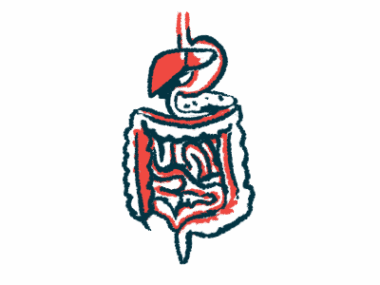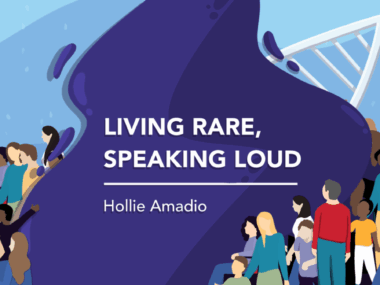Why I Fear Sending My Daughter to Slumber Parties
Attentiveness is crucial when a loved one has hereditary angioedema
Written by |

The chatter of various dinner conversations hummed throughout my father’s house. It was Easter weekend, and our traditional dinner for family and friends who were visiting for a local university’s homecoming was in full swing. Guests had come and filled various rooms to enjoy great conversation and food.
At the heart of the house, the massive kitchen overflowed with every dish imaginable. And my sister, my father, and I had prepared enough food to feed more than 60 people.
“We need to label every single pan and list any allergy ingredients it contains,” my sister had mentioned earlier. Because she’s a doctor, and I’m the mom of a child with a unique food allergy, we took the time to meticulously label every pan and table.
With the dinner in full swing, I returned to the kitchen to make my plate while my sister talked to some guests.
“Oh, my gosh! I hate when I swell,” I overheard one of my cousins say. I turned to face her just as she scooped up a fork full of what she thought was real macaroni and cheese. She paused before she placed it in her mouth. “But that’s what happens when you have a nut allergy.”
According to my sister, the next moment happened so fast that she didn’t have time to stop me. I swiftly approached my cousin, yanked the fork out of her hand, grabbed the plate out of her grasp, and delivered both items to the garbage.
The kitchen went silent.
“Why did you do that?” my cousin asked in disbelief.
“The vegan macaroni and cheese, which was on your plate, was made from nuts,” I replied.
After pointing out the buffet she could eat from, she made a new plate and went back to chatting as if the previous incident had never happened.
It turns out my cousin hadn’t paid attention, missed all the signs, and went to the wrong buffet table. Thankfully, I saw her make her plate before knowing about her allergy. My attentiveness had saved her life.
Staying alert
“I got invited to a slumber party!” our oldest daughter, whom we lovingly refer to as Ladybug, exclaimed as she hopped in the car a few weeks ago.
It was a sentence I had dreaded since she’d begun showing signs of hereditary angioedema (HAE). Although we’d managed to avoid them, I knew a slumber party invitation was in our near future.
She was going to ask me if she could go, and the answer to her inevitable question would be no. Not a “forever” no, more of a “not right now” no.
“Does she have any allergies?” I imagine the parent of the hosting house asking me.
That question is scary. There’s no simple answer about Ladybug’s health. Of course, I’d pack her EpiPen, inhaler, and daily medications. But the unpredictability of HAE presents more significant problems.
Slumber partying is a far cry from the attentiveness of babysitting. Most parents allow teenagers to watch movies, eat junk food, and stay up late. But what if Ladybug feels fatigued, her hands begin to tingle, or her stomach hurts? Would she ignore those symptoms so she could stay? Would the mom of that house notice that Ladybug isn’t herself? Who will be the “me” I was to my cousin at that dinner?
The truth is, the only reason I knew my cousin couldn’t eat the vegan macaroni and cheese was because I made it. I knew everything that went into it. If anyone had questions about it, I knew the answer.
No, Ladybug isn’t a recipe. But we’ve lived with HAE long enough for me to know the details. Maybe the solution was to ensure that the host mom knew the details, too.
“Let’s make a deal,” I finally said to Ladybug. “You might miss this sleepover, but I’ll sit down with your friend’s mom to talk about HAE, and then you can go to the next one.”
“Or,” she suggested, “maybe I can have my own?”
I chuckled. “Or that.”
If there’s one thing she’s starting to learn, it’s that there are always other options. And knowing she knows this helps me breathe a little easier.
Note: Angioedema News is strictly a news and information website about the disease. It does not provide medical advice, diagnosis, or treatment. This content is not intended to be a substitute for professional medical advice, diagnosis, or treatment. Always seek the advice of your physician or other qualified health provider with any questions you may have regarding a medical condition. Never disregard professional medical advice or delay in seeking it because of something you have read on this website. The opinions expressed in this column are not those of Angioedema News or its parent company, Bionews, and are intended to spark discussion about issues pertaining to angioedema.







Leave a comment
Fill in the required fields to post. Your email address will not be published.